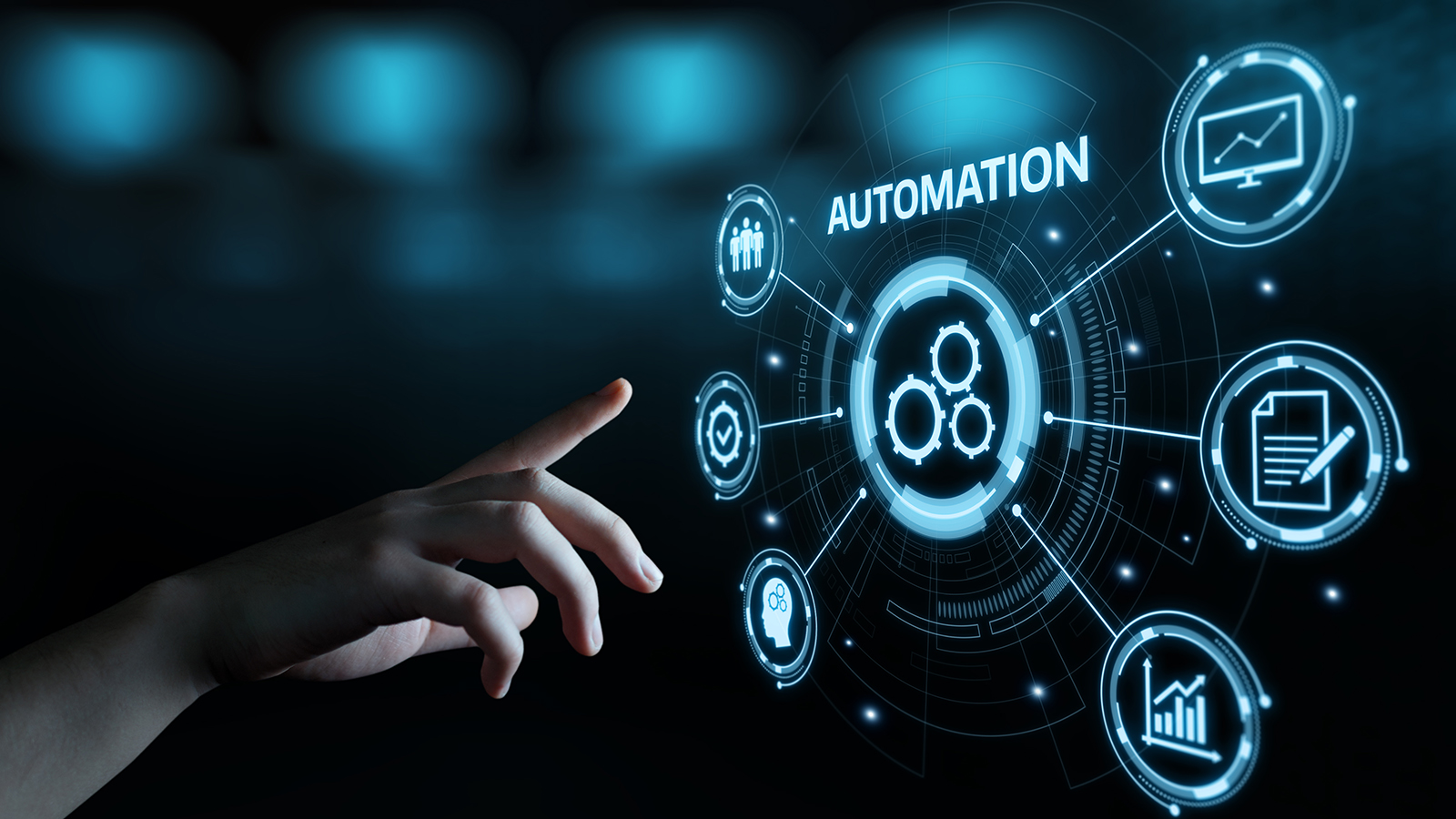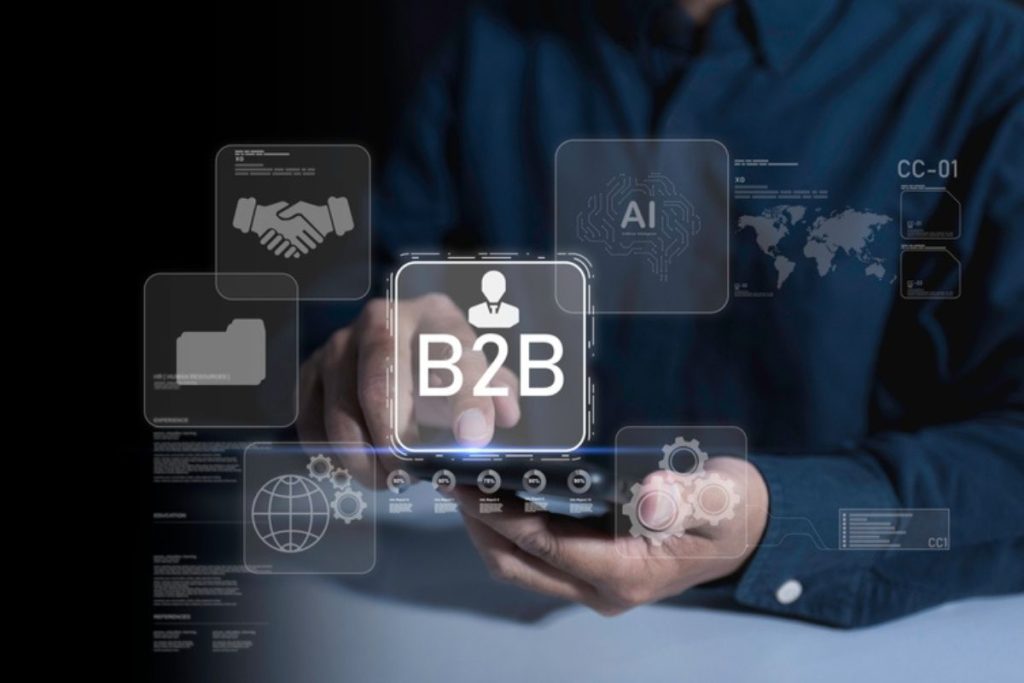Open Performance and Development With AI Automation for B2B Business
AI automation is changing the landscape for B2B firms. It enhances operations and reduces dependence on human treatment. This shift permits services to make quicker, data-driven decisions. As organizations check out which processes to automate, they should also consider the right tools to carry out. Obstacles stay in taking on AI innovation. The effects of these modifications can form the future of several business in means yet to be completely understood
Understanding AI Automation in the B2B Context
As services progressively seek effectiveness, comprehending AI automation in the B2B context ends up being crucial. AI automation includes using advanced modern technologies to simplify operations, reduce human intervention, and boost decision-making processes. In the B2B landscape, this can manifest in various kinds, such as automating customer support interactions, handling supply chain logistics, or maximizing marketing projects. Business can utilize AI to assess substantial datasets swiftly, allowing them to identify trends and insights that educate tactical options. AI systems can integrate effortlessly with existing innovations, providing a cohesive system for handling business functions. This understanding lays the foundation for companies to check out just how AI can change their operations, enhance efficiency, and inevitably foster lasting growth in an open market.
Key Advantages of Carrying Out AI Automation

Recognizing Processes Suitable for Automation

Choosing the Right AI Devices for Your Business
When B2B companies take into consideration automating their procedures, choosing the appropriate AI tools ends up being essential for achieving preferred outcomes. Firms ought to start by evaluating their unique requirements and goals, making sure alignment with business goals (Minarik AI). Examining the integration, versatility, and scalability capabilities of possible devices is critical, as these aspects establish long-lasting performance. Organizations should additionally consider user-friendliness and the level of support given by vendors, as these components can impact effective application. Additionally, evaluating client testimonials and case studies can offer understandings into just how specific AI solutions do in real-world situations. By diligently selecting AI devices that fit their functional demands, B2B business can enhance performance and drive growth while lessening prospective interruptions
Overcoming Challenges in AI Fostering
B2B business often experience considerable difficulties in embracing AI technologies, especially concerns connected to information quality and resistance to change monitoring. Poor information high quality can prevent the performance of AI systems, while staff member hesitation to accept new processes can stall execution efforts - Growth Systems For B2B. Addressing these obstacles is crucial for effective AI integration and maximizing its prospective advantages
Information Top Quality Issues
Assuring high data top quality is essential for the effective adoption of AI innovations in business-to-business environments. Unreliable, insufficient, or obsolete data can severely impede AI initiatives, leading to wrong insights and inadequate decision-making. Companies often face obstacles such as information silos, disparities across various sources, and a lack of standard data formats. To get rid of these concerns, companies have to purchase data cleansing, combination, and governance procedures. Applying durable information monitoring techniques ensures that the details fed into AI systems is trusted and appropriate. Fostering a culture of data high quality recognition amongst employees can boost information accuracy over time. By attending to data quality issues, B2B firms can release the full capacity of AI automation, driving performance and development.
Modification Administration Resistance

Determining the Impact of AI Automation
Gauging the impact of AI automation in B2B companies calls for a clear understanding of key performance indicators (KPIs) that line up with company objectives. Reliable data analysis methods are important for translating the results, while robust ROI analysis methods assist establish the monetary benefits of automation efforts. Together, these components provide a considerable structure for assessing AI's payments to organizational success.
Trick Efficiency Indicators
Trick efficiency signs (KPIs) work as necessary devices for B2B business to analyze the performance of AI automation initiatives. By developing clear metrics, organizations can gauge renovations in functional performance, expense decrease, and earnings growth straight attributable to automation. Typical KPIs include cycle time reduction, mistake prices, consumer satisfaction ratings, and worker efficiency degrees. These signs provide understandings right into exactly how AI systems are enhancing procedures and enhancing general performance. In addition, tracking KPIs makes it possible for firms to determine locations for more enhancement and to line up AI automation initiatives with critical organization goals. Eventually, a well-defined structure of KPIs warranties that B2B business can quantitatively review the influence of AI automation on their operations and drive continuous growth.
Data Evaluation Techniques
Effective data analysis techniques play a crucial function in evaluating the impact of AI automation within B2B companies. By using statistical methods, companies can determine fads and patterns in functional data, permitting them to analyze the efficiency gains attained via automation. Strategies such as regression evaluation and time collection forecasting provide insights into how AI-driven procedures affect efficiency and decision-making. Additionally, data visualization tools can efficiently communicate findings to stakeholders, facilitating informed critical decisions. Artificial intelligence algorithms can better boost evaluation by predicting future outcomes based upon historical data, offering workable insights. Ultimately, these strategies allow B2B business to determine success and optimize their AI automation campaigns, making sure alignment with organization purposes and improving overall performance.
ROI Evaluation Strategies
Reviewing the roi (ROI) of AI automation is vital for B2B companies looking for to understand the economic ramifications of their technological efforts. Companies can use various ROI analysis approaches to assess the effectiveness of AI executions - AI Automation For B2B. One reliable method entails calculating price financial savings by comparing operational expenditures before and after automation (Minarik AI). In addition, measuring efficiency enhancements through key efficiency signs (KPIs) assists quantify the benefits of AI. Customer complete satisfaction metrics can likewise give insights right into the influence of automation on solution quality. To assure a comprehensive analysis, companies need to think about both straight financial returns and abstract benefits, such as enhanced decision-making capacities and competitive advantage. This diverse examination makes it possible for B2B business to make enlightened decisions regarding future financial investments in AI technology
Future Fads in AI Automation for B2B Business
What innovations lie in advance for AI automation in B2B firms? Emerging trends suggest a substantial shift in the direction of boosted data analytics abilities, making it possible for businesses to make more educated choices. Anticipating analytics will certainly become progressively necessary, allowing companies to anticipate market modifications and client demands. Furthermore, the assimilation of AI with Web of Points (IoT) modern technology is anticipated to simplify operations by providing real-time insights and automation of processes. Companies will also concentrate on enhancing client experiences with customized advertising and marketing driven by AI formulas. Moreover, advancements in natural language handling will certainly promote far better interaction in between organizations and customers. As these fads advance, B2B firms should adapt to take advantage of AI automation properly, guaranteeing sustained growth and competitive weblink advantage.
Frequently Asked Inquiries
What Industries Benefit the Many From AI Automation in B2B?
Manufacturing, financing, healthcare, and logistics sectors profit the most from AI automation in B2B. These sectors leverage AI to maximize processes, enhance decision-making, and enhance overall functional effectiveness, driving considerable growth and innovation.
Just How Does AI Automation Effect Staff Member Duties and Responsibilities?
AI automation reshapes staff member functions and responsibilities by streamlining repeated tasks, making it possible for workers to concentrate on calculated initiatives. This change cultivates ability growth, improves productivity, and motivates cooperation, inevitably driving organizational growth and development.
What Prevail Misconceptions Concerning AI Automation in B2B?
Typical misconceptions concerning AI automation in B2B include concerns of job loss, beliefs that AI can totally replace human judgment, and taking too lightly the significance of cooperation between AI systems and workers for perfect outcomes.
Exactly How Can Organizations Ensure Data Personal Privacy With AI Automation?
Organizations can guarantee data privacy with AI automation by executing robust security methods, sticking to governing compliance, conducting regular audits, and training workers on data dealing with methods to alleviate dangers and shield delicate details.
What Are the Prices Related To Implementing AI Automation?
The costs related to executing AI automation include software application procurement, framework upgrades, training employees, recurring upkeep, and possible downtime throughout combination. Additionally, companies might sustain expenses connected to information safety and security and compliance measures.
Gauging the impact of AI automation in B2B companies calls for a clear understanding of crucial performance indicators (KPIs) that straighten with organization purposes. Key performance indications (KPIs) offer as crucial devices for B2B companies to assess the performance of AI automation efforts. Efficient data evaluation methods play a necessary function in assessing the influence of AI automation within B2B firms. Assessing the return on investment (ROI) of AI automation is crucial for B2B business seeking to recognize the monetary implications of their technical initiatives. What technologies lie in advance for AI automation in B2B business?